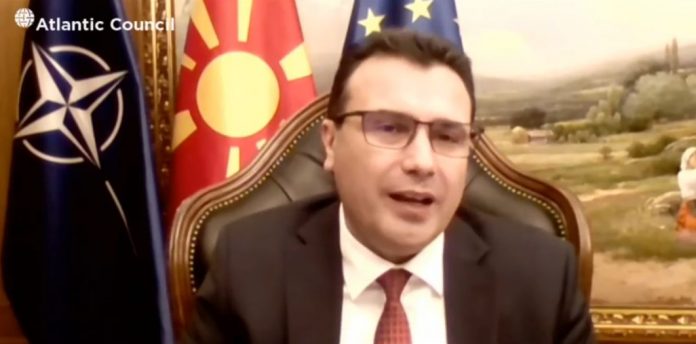The Atlantic Council, an international relations think tank, held a panel discussion dedicated to Macedonia’s future and its European integration. Prime Minister Zoran Zaev was at the focus of the discussion, giving his commentary on the issues that facing the country at the present.
Prime Minister Zaev identified improving the health system, instituting educational reforms, fighting corruption and increasing the quality of the democracy in alignment with EU standards – as his government’s foremost domestic priorities.
Regarding the contentious negotiations with Bulgaria, which presses for broad changes that impact the foundations of the Macedonian ethnic identity, Zaev commented that the position held by the eastern neighbour is “unprincipled” because it prevented the start of formal negotiations between Macedonia and the EU.
According to Zaev, “Bulgaria’s stance is asynchronous and against international law” and directed a message to Bulgaria, saying “friends shouldn’t block one another.” Zaev added that Macedonia isn’t going to depart from its red lines safeguarding the national identity.
Following the signing of the so-called Friendship Agreement between Macedonia and Bulgaria, Zaev and his counterpart Boyko Borissov exchanged cordial remarks that were centered on the words “friends” and “brothers” which dominated the press in both countries.
In terms of the economy, Zaev talked about transforming into a green economy by replacing the types of fuel that pollute the environment, such as coal, and by equipping energy production facilities with systems for solar energy.
The panel was attended by political experts and practitioners in the field of international relations with experience in the Western Balkans region, including former NATO General Secretary George Robertson, career ambassador Robert Gelbard, Damian Murphy of the US Senate’s foreign relations committee and others.



